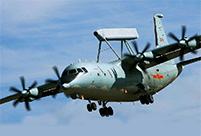 Top 100 beauties in the world!
Top 100 beauties in the world!
 Gallery: Who is the most beautiful one?
Gallery: Who is the most beautiful one?
 If you like autumn, put your hands in the air!
If you like autumn, put your hands in the air!
 Fan Bingbing's "Queen style" in new play
Fan Bingbing's "Queen style" in new play
 Lingerie show at 2014 Miss China
Lingerie show at 2014 Miss China
 J-10 fighters show aerobatic stunts in smog-free sky
J-10 fighters show aerobatic stunts in smog-free sky
 Charming contestants of Shanghai Int’l Model Contest
Charming contestants of Shanghai Int’l Model Contest
 Most amazing chi-pao beauties
Most amazing chi-pao beauties
 7 deadly animal attacks
Russia to launch 70 Proton rockets by 2020: official
7 deadly animal attacks
Russia to launch 70 Proton rockets by 2020: officialBEIJING, Nov. 21 (Xinhua) -- Despite its distance from the world's largest market, New Zealand, with vast flocks of sheep, is poised to plug the rapidly growing demand for the high-protein red meat in China.
CHILLING POTENTIAL
At a meat processing plant in Lorneville, in the heart of New Zealand's South Island, workers are heaving more than 600 sheep carcasses into a long row of waiting reefer containers. The load will end up being served as choice lamb cuts on Chinese dinner tables.
The plant belongs to the Alliance Group, a farmer-owned co-operative and one of New Zealand' s leading meat exporters. From Lorneville, the containers will be transported by rail to nearby Port Chalmers, loaded onto a Maersk Line vessel and delivered via transhipment to the world's biggest market for sheep meat in just over 20 days.
Murray Brown, general manager of marketing for the Alliance Group, said sheep meat, particularly lamb, is a popular choice with Chinese consumers, who consider Kiwi-produced food products to be of a high quality and freshness.
Fuelled by the 2008 China-New Zealand Free Trade Agreement, bilateral trade has grown at an unprecedented speed. The trade between the two countries rose to 12.39 billion U.S. dollars in 2013, with imports from New Zealand exceeding 8.25 billion U.S. dollars, a year-on-year increase of 42 percent, mainly dairy food, meat and lumber. China is now New Zealand's largest trading partner.
Gerard Morrison, managing director of the New Zealand branch of Maersk Line, the world's largest container shipping company, has witnessed the "remarkable change".
"The increase has been massive," said Morrison. "Since 2005, meat volume to China has grown by 500 percent, whereas in the dairy segment the growth is close to 800 percent."
Maersk Line and the Alliance Group signed a long-term service contract recently. The deal will see the former as the principal carrier of the Alliance Group' s annual 4,800 TEUs (20-foot equivalent units) of frozen sheep meat, which is discharged in north China's Dalian port, before being further processed and sold through wholesale or retail channels throughout the vast country.
In addition, Brown sees chilled meat as the next potential growth surge for trade in China, where the evolution of the middle class means that sophisticated and seasoned shoppers -- those able and willing to pay a premium for quality -- will soon emerge as the dominant force.
Because of its freshness and quality, chilled lamb commands a premium price. However, the products have a shorter shelf life and require careful temperature control during storing and transportation. At the moment, due to regulatory controls and a lack of proper infrastructure, New Zealand meat exporters are not shipping chilled products to China.
"Right now most of our China exports involve high-value frozen sheep meat. China is a volume market at the moment. The next aspiration for this trade is probably to look for value such as chilled lamb," he said.
"As China' s middle class grows with rapid rural to urban population migration, the demand for higher-value products will be there when consumers have more disposable income in the coming years. Regulatory authorities will have to allow for chilled meat to be imported, which will open new opportunities for us."
BOILING DEMAND
Zhi Tieniu, head of the Tianjin meat association in north China, where sheep meat is always popular, believes New Zealand sheep will be a "new hottie in town" with its high quality and relatively cheap price.
Sheep consumption in China has been on the rise in recent years, but there are not so many large-scale domestic farm. The result is a gap between demand and supply -- a perfect opportunity for imported meat.
"New Zealand is traditionally strong in sheep raising and therefore has a steady supply for export. Sometimes, we see at Chinese supermarkets in the first-tier cities such as Beijing and Shanghai, the sheep meat from New Zealand is even cheaper than that labelled with 'made-in-China', " said Zhi.
Zhi said there's no significant difference between the imported and home-produced meat, but those branded with New Zealand please Chinese consumers worried about food safety.
Zhao Rui, who works for an American business consulting company based in Beijing and is always a fan of imported food for the quality, shows great interest in New Zealand meat.
"At least, I don't have to worry about feeding my baby boy with meat injected with water, a shoddy way that some black-hearted business people often do to increase the meat weight," she said.
Madame Song, who owns a shop of imported meat on Taobao, China's largest e-commerce platform, is confident of the future of her business. The most popular item of her shop is the frozen lamb imported from New Zealand, which sells at 29.9 yuan (4.8 U.S. dollars) per kg. She sold more than 2,400 orders of the meat within a month.
"There's no surprise that the meat has become the best seller. New Zealand enjoys a high reputation on its sheep product. Most of the buyers are young, well-educated white collars, who prefer value to price. Plus compared to domestic lamb, the price is almost the same," she said.
(Tan Yihui also contributes to the story)
 Female soldiers
Female soldiers Hot girls at motor show
Hot girls at motor show  Official trailer of Y-20
Official trailer of Y-20 Photos: Xi Jinping in Fujian
Photos: Xi Jinping in Fujian Standard faces for each countries
Standard faces for each countries China-made military transport aircraft gets ready
China-made military transport aircraft gets ready World Pole Dance Championship in China
World Pole Dance Championship in China Shocking! Photos of Chinese fighters revealed
Shocking! Photos of Chinese fighters revealed 59-year-old Liu Xiaoqing still looks stunning
59-year-old Liu Xiaoqing still looks stunning  Top 10 most dangerous jobs in the world
Top 10 most dangerous jobs in the world  Top 10 fifth generation jet fighters in the world
Top 10 fifth generation jet fighters in the world Top 10 Chinese goddesses
Top 10 Chinese goddesses  Top 20 hottest women in the world in 2014
Top 20 hottest women in the world in 2014 Top 10 pure beauties in showbiz
Top 10 pure beauties in showbiz  Top 10 world's highest-paid models 2014
Top 10 world's highest-paid models 2014 The most gorgeous Chinese women
The most gorgeous Chinese women Top 10 most handsome faces in Asia
Top 10 most handsome faces in AsiaDay|Week|Month